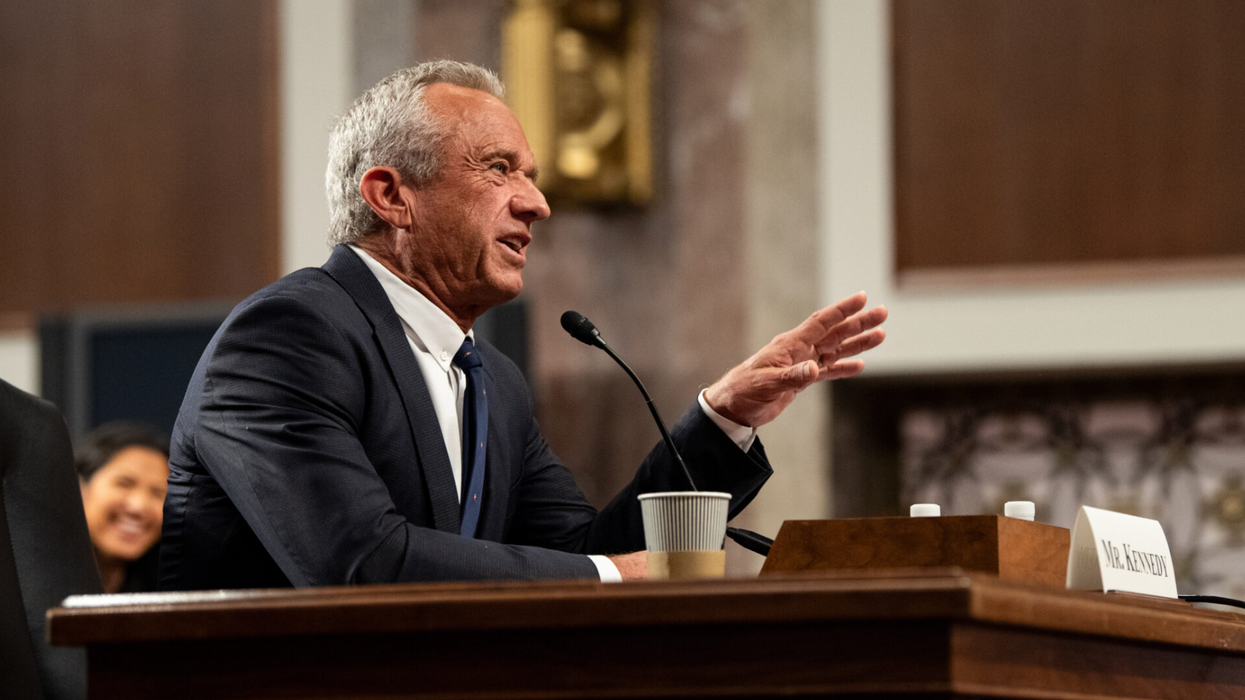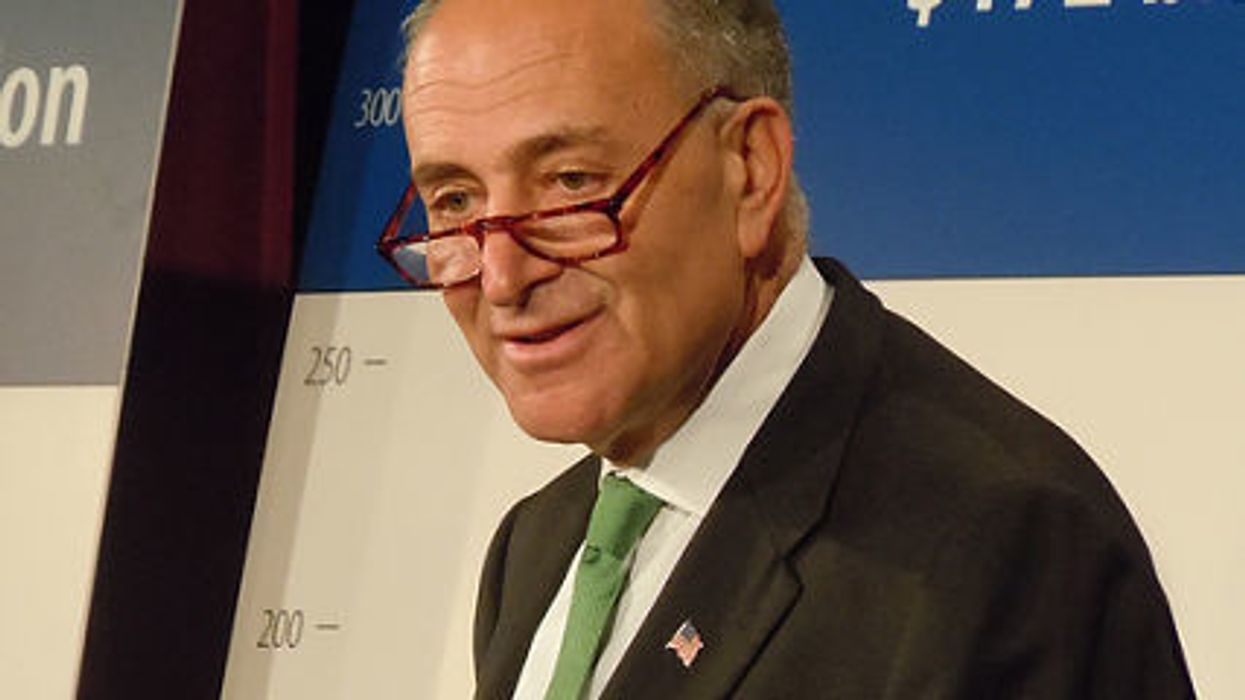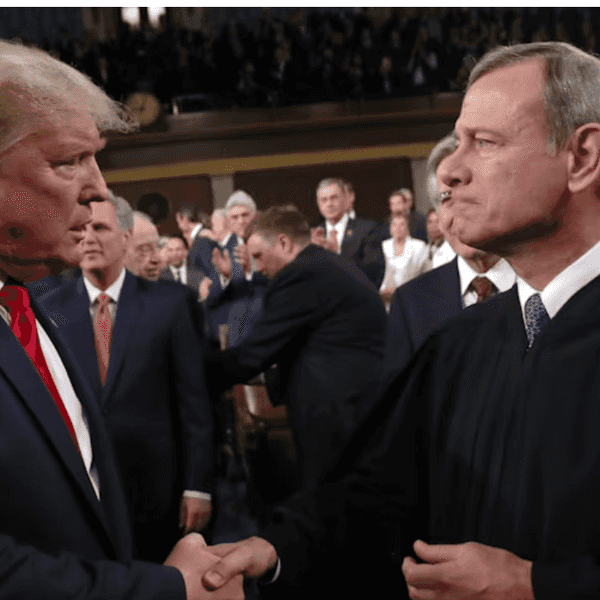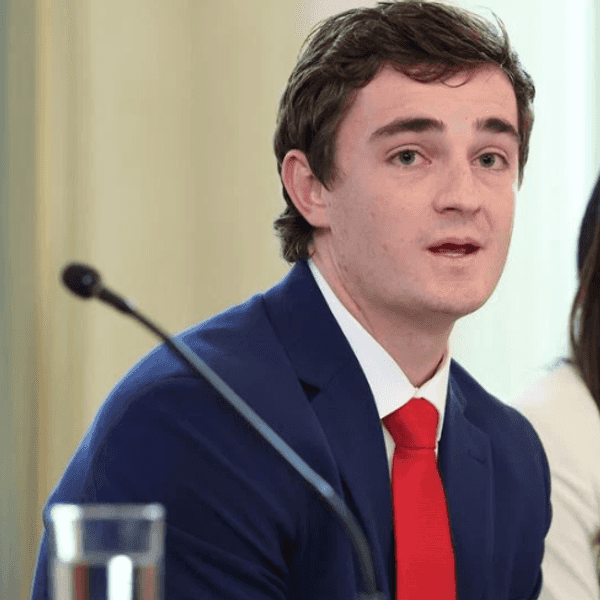Yes, Social Security Is Fiscally Safe -- Unless Republicans Screw Us All
Last week’s release of the 2025 Social Security Trustees Report provoked a lot of teeth gnashing, hair pulling, and gasket blowing about the program facing insolvency. To those of you who are freaking out, please stay calm. While pundits can make a good living promoting scare stories about Social Security, their nightmare scenarios have little basis in reality.
To be clear, the most recent trustees report does show the program will face a shortfall, so nine years from now it will not be able to pay full scheduled benefits. But it is important to get a clear picture of what that means.
First, let’s look at the numbers. Under current law, the government cannot pay out benefits if the money is not in the Social Security trust fund. Projections show that in 2034, after the bonds held by the trust fund have been sold off, the program will have enough money to pay 82 percent of scheduled benefits.
While a benefit cut of 18 percent would be terrible for most beneficiaries, 82 percent is still very far from zero. So, the idea that the program will just go away is a complete invention. Of course, Congress could vote it out of existence, but that doesn’t seem very likely given the share of Americans who are current beneficiaries or expect to be in the near future.
Another argument that deserves to be attacked head-on is the charge that Social Security in its current form is a major cause of generational inequality. While baby boom retirements substantially reduced the ratio of workers to retirees, there is little change projected for later years in this century. The share of scheduled benefits that could be paid, absent any action from Congress, would fall only modestly in subsequent decades.
Going out to 2065, when today’s 25-year-olds will be turning 65, the program is projected to be able to pay 74 percent of scheduled benefits. This would mean that, if Congress never touches the program and the projections prove correct, a lifetime medium earner would get a benefit of $30,900 in 2065, more than 20 percent higher than the $25,200 a medium earner who retires today would get (all numbers are in 2025 dollars). Where’s the generational inequality?
The fuller picture is somewhat more complicated. We expect retirees’ benefits to bear some relationship to their income while working. The benefit the program would be able to pay in 2065, absent any changes, would be a lower share of lifetime earnings than what is the case today. But then again, why are workers over the next 40 years expected to have higher lifetime earnings? It’s because they have benefited from more capital stock and better infrastructure and technology than what boomers had when they entered the workforce.
We can have a serious debate about whether the rate of increase in real wages and living standards is as rapid as it should be, but there is no doubt that we are headed in the right direction, at least on average (an important point I will return to shortly). If we want to concern ourselves with generational inequality, we should consider the condition of the planet we are leaving our kids. If we don’t do more to address global warming, the planet will be a much less pleasant place in 30 or 40 years than it is today. That would pose a very real and serious threat to young people.
How big is the funding gap?
There are two important points to make about the projected funding gap. First, it is more of an accounting problem than an economic one. Second, it is not especially large relative to other expenses the country covers.
The first point is when the trust fund runs out of bonds, as is projected in 2033, it will not create a new economic burden for the country. The government will not be paying substantially more in benefits in 2034 than in 2033, it just won’t have bonds in the trust fund to cover part of the expense.
That’s an accounting issue. The increase in spending on Social Security from 2033 to 2034, measured as a share of gross domestic product (GDP), would be just 0.03 percentage points. That’s the full extent of the increased economic burden the year the trust fund faces depletion, amounting to less than one percent of the Pentagon’s budget.
If the goal is to completely cover the annual funding gap, the projections suggest that it would require increased revenue and/or a cut in spending of a bit more than one percent of GDP (one-third of the Pentagon budget). The reason for this gap is the program has been spending more than its income for more than a decade, with the annual gap growing continually larger over this period. The bonds accumulated in the trust fund was filling this gap.
There is nothing nefarious here. It was all by design and fully public. The last major adjustment to the program in 1982 structured it to build up a large trust fund while the baby boomers were in the workforce to be spent down when they retired.
If the point is to fill the gap by committing additional revenue to the program, the government could raise the cap on wages that are taxed for Social Security (currently $176,100), increase the tax rate, or transfer other government revenue to the program, which would literally be just accounting. If $300 billion a year of general revenue (roughly 1 percent of GDP) would go to the Social Security fund, it would reduce or eliminate the shortfall in the Social Security trust fund but have no effect on the federal budget deficit as it is usually reported. In short, the government could easily come up with the money to pay all scheduled benefits.
Tax the rich
If the government decides to raise additional tax revenue to cover the Social Security shortfall, it makes sense that the bulk of it would come from wealthiest households. They have been the big winners in the economy over the last half century.
But the logic for taxing the rich goes even further. The upward redistribution over the last 50 years was a major factor in causing the program’s shortfall. In 1982, the last time Congress made major changes to the program, only 10 percent of wage income was above the cap and thus escaped taxation. Currently close to 18 percent of wage income is above the cap.
In addition, since 2000 there has been a major shift from corporate wages to profits. In 2000, profits were 18.2 percent of corporate income. In 2024, they were 28.3 percent. If corporate profits had remained at their 2000 share, the average wage in the corporate sector would be more than 12 percent higher than it is today. The combination of the upward redistribution of wage income—from ordinary workers to highly paid professionals, Wall Street types, and corporate executives—and the shift from wages to profits, explains why the program is projected to run short. That makes a good argument for modifying Social Security so that the segment of the population that benefited from this upward redistribution pays more to support the program.
There is one other point worth making about the prospects for additional tax revenue. The government could raise the tax rate. While any additional payments to support the program should mainly come from the rich, it is not absurd to think that ordinary workers could pay a higher tax rate. After all, the program is designed to support a considerably longer retirement than was the case in 1990, the last time there was any tax rate increase.
From 1966 to 1990, the tax rate on wages rose from 5.8 percent to 12.4 percent, an increase of 6.6 percentage points over 24 years. By contrast, there has been no increase in the last 35 years. If the tax were to increase, say by two percentage points over the next two decades, it would hardly seem like a major crisis. The average real annual wage is projected to be 32 percent higher in 2045 than it is today. It would be difficult to make a case that workers in 2045 would be suffering a major hardship if the government took back 2 percentage points of that increase in the form of higher Social Security taxes. We do have to worry about inequality, but for the last decade, workers at the bottom have been roughly keeping pace with average wage growth.
It is understandable that politicians running for office don’t like to talk about tax increases, but in this respect, Donald Trump can perhaps offer a useful lesson. He is now imposing import taxes—tariffs—that could well reach $400 billion a year, equivalent to a four percentage point increase in the payroll tax. He is doing this even without getting congressional approval. To date, Trump’s tax hike has prompted only limited public complaint. It is hard to believe that a tax increase half this size, phased in over 20 years, to support the country’s most popular social program would be an impossible political lift.
Social Security is a great program
On this last point, it is worth reminding everyone how incredibly popular Social Security is. It enjoys overwhelming public support across the political spectrum. Even supermajorities of Republicans like it.
The reason is obvious. For more than 80 years, Social Security has provided the country’s workers and their families a substantial degree of economic security. It even provides security to high-income workers who may not think they need it, because even highly paid doctors and lawyers may find they are no longer wealthy after a serious illness or a car accident.
The program is also incredibly efficient. Administrative costs for the retirement program are less than 0.4 percent of the benefits paid each year. By all measures, the amount of fraud in the program is minimal. Elon Musk’s Department of Government Efficiency (DOGE) team confirmed that fact. While they went in with grand promises to root out waste and fraud, they essentially found nothing and instead promoted such wildly absurd lies as 20 million people over age 120 were getting benefits or 40 percent of the phone calls to the agency were from people trying to commit fraud. (The small grain of truth in DOGE’s 40 percent figure is 40 percent of the identified instances of fraud were initiated through phone calls, which means 60 percent were either initiated online or via in-person visits.)
In short, Social Security does what it is designed to do. As much as the program’s political enemies and the news media like to hype scare stories, there is no reason it will not be around long into the future, paying out full scheduled benefits.
Dean Baker is an economist, author, and co-founder of the Center for Economic Policy and Research. His writing has appeared in many major publications, including The Atlantic, The Washington Post, and The Financial Times. Please consider subscribing to his Substack Dean Baker.
Reprinted with permission from Substack.












